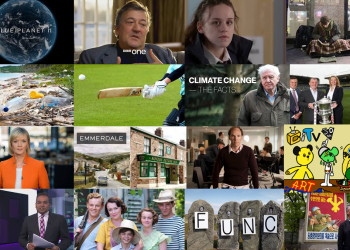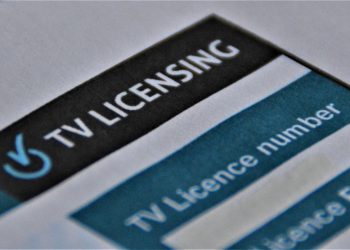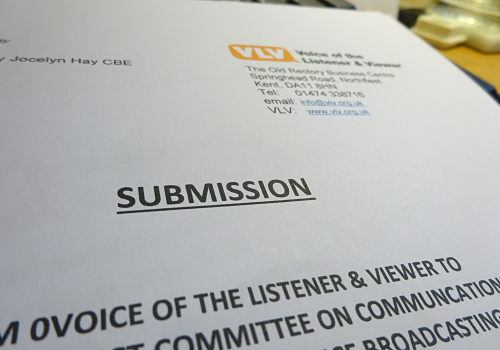VLV’s work focuses on broadcasting policy and there are a range of issues we are currently campaigning on.
VLV’s goals are to:
• Ensure that high quality broadcasting services which are provided free at the point of use to TV licence payers are maintained and supported
• Hold the UK’s public service broadcasters to account
• Monitor the delivery of public service content
• Ensure that citizen interests are represented in the policy debate around broadcasting
• Monitor the growth of subscription services and their impact on free-to-view services

Supporting Public Service Broadcasting
Public service broadcasting (PSB) describes radio and TV content considered beneficial to the public good. The UK has four broadcasters designated as Public Service Broadcasters – the BBC, ITV, Channel 4 and Channel 5. They are required by law to provide PSB content which includes programmes produced in the UK which reflect our culture and values, current affairs and news programmes.
In an increasingly crowded media space with the rise in the take up of subscription video on demand services, the UK’s PSB system is under threat. It is crucial we support our broadcasting system so that quality and range are maintained. A key element of support for our public service broadcasters is that they should be easily discoverable for audiences.
You can download a copy of VLV’s submission about the threat of video on demand here and a submission about why it is important that the PSBs are given prominence here.

BBC funding settlements
The VLV believes the method of negotiating BBC funding settlements should be reformed. The current process is not subject to any public or Parliamentary scrutiny and has led to settlements in 2010 and 2015 which have reduced the BBC’s budget by an estimated 25% despite the fact that TV licence payers are paying more than they were in 2010. You can download a VLV briefing paper on this issue.

BBC transparency and accountability
Under the 2016 BBC Charter, Ofcom took over responsibility for regulating the BBC. Since then VLV has been concerned that transparency and accountability has reduced under the new model. Before 2016 the BBC Trust held regular reviews of BBC services, allowing audiences the opportunity to comment on the BBC’s performance. Thousands of licence fee payers, the ‘shareholders’ of the BBC, provided comment and were able to influence the direction of the BBC. This opportunity no longer exists because Ofcom does not consult publicly on BBC performance.

The sustainability of ITV, Channel 4 and Channel 5
VLV is concerned that the UK’s commercial public service broadcasters who provide UK produced content, news and other content which is culturally specific to the UK should be supported. The sustainability of the commercial PSBs is under threat because of streaming subscription services and proposals to impose stricter regulation on advertising to improve childhood obesity. This is likely to impact on advertising revenues and reduce these broadcasters’ ability to invest in high quality UK content.

Children’s Content
There’s been a decline in UK children’s TV since 2006. From VLV’s perspective, the main argument for having children’s content on mainstream free to air TV platforms is a civic one related to issues of cultural identity and diversity, including access to information and knowledge. All of these are reflected in PSB Purposes and Characteristics, which reflect the type of environment we might wish our children to grow up in. You can read VLV’s full submission to Ofcom made in January 2018.


Spectrum policy
VLV is concerned with government spectrum policy and how it impacts on the provision of free to air television and radio services. We have made numerous submissions to Ofcom and the DCMS, highlighting the need to ensure that UK citizens who enjoy free to air television should not be disadvantaged by changes to UK spectrum policy which is under pressure from mobile phone operators who are greedy for spectrum to increase data delivery via mobiles. You can read a background paper paper on why spectrum policy matters for UK audiences here.










Follow Us